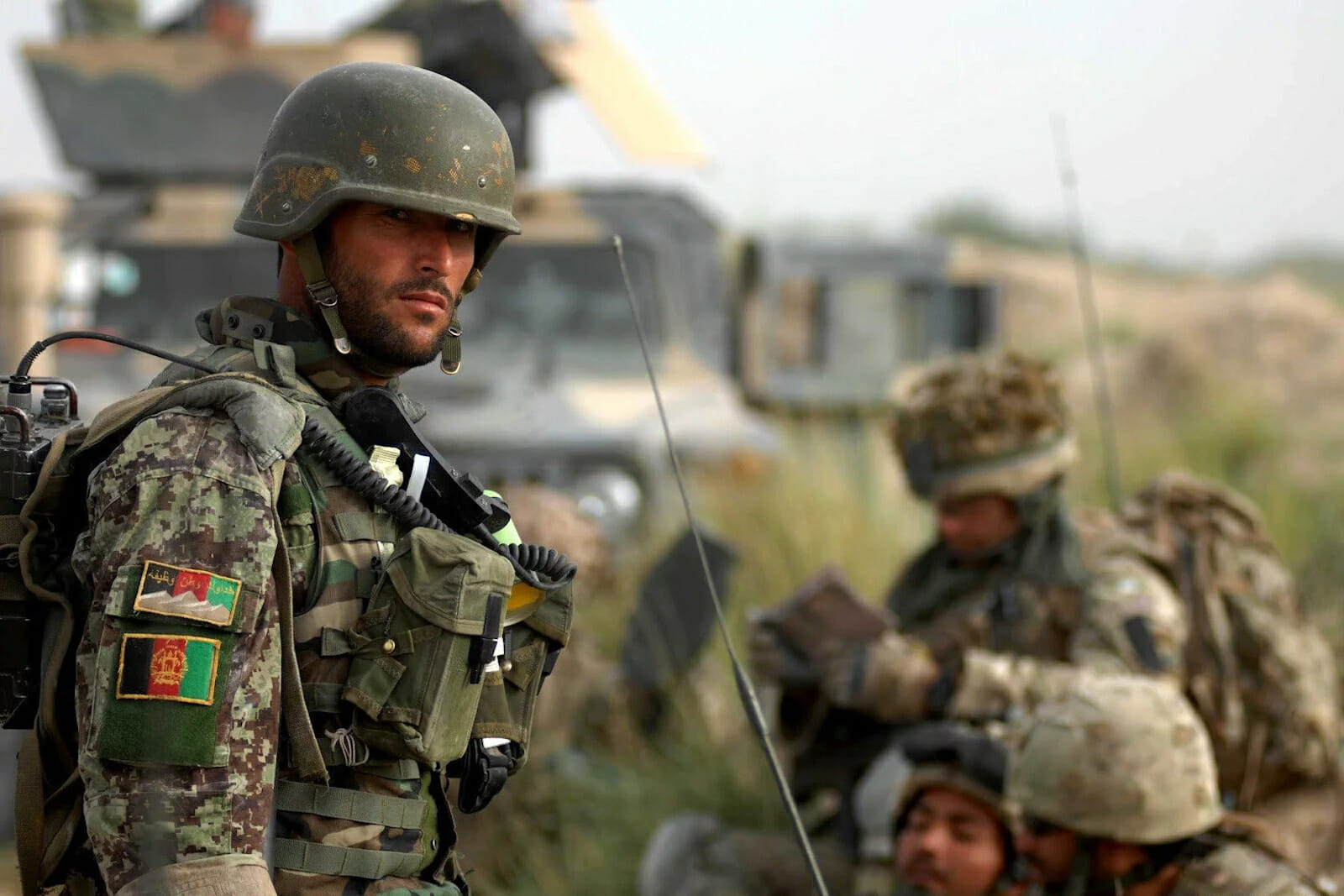
Securing Afghanistan’s Perimeter
America’s talks with the Afghan Taliban have progressed lately and reports that American troops will leave the country 18 months after a final settlement has been denied by the Taliban and the U.S. Special Representative for Afghanistan Reconciliation, Zalmay Khalilzad. Khalilzad stressed, “Nothing will be agreed to until everything has been agreed to.” Whatever the final outcome, “trust but verify” is warranted whenever extremists suddenly claim to want to live “in an inclusive Afghan world.” (The Taliban obviously know “inclusive” is catnip to many in the West.)
If the U.S. is heading for the door, it should leave in a responsible fashion which means making appropriate arrangements with Afghanistan’s neighbors in the event Afghanistan becomes an even more lawless space fought over by warlords, the Kabul government, and the Taliban.
But first, the people. The U.S. should ensure that Afghans who helped our military and diplomatic, and reconstruction efforts, such as translators, are fast-tracked for U.S. visas. That may cause a brain drain but, as it stands now, they’re not being given the chance to do what they’re capable of. The U.S. owes these people a “Plan B” if Taliban involvement in the political process turns into retaliation.
To protect surrounding states from chaos inside Afghanistan or Taliban-inspired violence directed outside the country’s borders, the U.S. should make specific security arrangements with the Central Asian states, China, Pakistan, and Iran.
The bordering Central Asian states, Turkmenistan, Uzbekistan, and Tajikistan, have functioning governments and secular societies that have proved resistant to religious extremism, notably that of the Islamic Movement of Uzbekistan, which was supported by the Taliban and Al-Qaeda. The U.S. should increase military-to-military and law enforcement cooperation with them, both for security sector reform and border security, and to staunch the flow of drugs which will likely continue when the Taliban have a role in the political process, especially given the numerous transport links between Afghanistan and its northern neighbors.
Turkmenistan has a policy of “positive neutrality” but may be concerned about the neighboring Afghan provinces which are among the most violent in the country. It recently launched a program to register most men for the army reserves and is reengaging with Russia, though mostly on Russia’s terms. The U.S. and Russia, the latter being concerned about the flow of drugs and extremism from its south, should address Turkmenistan’s border security, and use it as an opportunity to encourage Ashgabat to engage more with its neighbors and the international community.
Uzbekistan has competent government institutions and a new, reformist president who has advocated for Afghanistan’s place as part of Central Asia. The government hosted a Taliban delegation in 2018 and recently reiterated its willingness to host intra-Afghan peace talks. The country has a robust internal security agency, the State Security Service, and transport links at the Termez border crossing (road, rail, and barge,) and the nearby Navoi airfield. It has received investment from China as part of the Belt and Road Initiative (BRI) and will be a key link in the East-West corridor between China and Europe. Its transport infrastructure which connects it to Russia makes it an attractive target for narcotics traffickers.
If you look up “narco-state” in the dictionary you’ll find a map of Tajikistan, which relies on drugs trafficking for about 30% of its economy. U.S. counternarcotic assistance to Tajikistan has been effective only in giving the leading politicians a way to control the drug trade and put all the blame on Afghanistan and has made the country more authoritarian to boot. As Tajikistan is a pathway to the Russian and Chinese drugs markets, the U.S. should seek cooperation with Moscow and Beijing as the flow will likely increase after U.S. forces leave.
The three Central Asian republics have ethnic kin on the Afghan side of their borders. They may want to support them both for feelings of solidarity and to move the front line of Afghan instability as far south as possible. If the U.S. and European Union (EU) provide security sector support to the republics they will have to decide how much cross-border activity they will tolerate and make that clear in advance; the Russians may be more supportive of local concerns about Afghan instability as a way to quell instability and narcotics trafficking and to demonstrate more understanding of local concerns than the “far away” Americans and Europeans.
China’s concerns about the security of the Xinjiang Uyghur Autonomous Region on its western border have caused the creation of a surveillance state to control its Muslim citizens. China’s border with Afghanistan is only 47 miles long, but its repressive policies may attract violent Taliban support for its co-religionists. Though China’s heavy-handed approach has probably increased its security problems, the U.S. should initiate an intelligence-sharing effort about the Taliban threat which may moderate stresses in other areas of the relationship. It may also be a way for the U.S. to continue to address China’s actions in Xinjiang, but in the context of recognizing China’s security concerns as the region is key to its logistics links to the West.
Afghanistan has one successful export – poppy – which accounts for 90% of worldwide production of heroin, and the area under cultivation has increased in fits and starts since 2002. If the U.S. disengagement removes the few limits on poppy cultivation, the U.S. should consider how that can shape relations with Iran and Pakistan as the drogas will always get through, especially if the Taliban use the Afghanistan government assets to protect and move the poppy.
U.S. relations with Pakistan have always been fraught and won’t improve after the U.S. leaves Afghanistan as the rulers of Pakistan – the military – will see it as validation of their policy of mobilizing extremism to secure the “strategic depth” they imagine will be decisive in their struggle with India. It will also free the U.S. of any concern about the overland transport routes through Pakistan needed to resupply the Afghanistan venture and allow it to freely address Pakistan’s bad behavior, such as state support for extremists and endemic corruption.
U.S. relations with Iran’s government are also bad and the country is likewise controlled by a military organization, the Islamic Revolutionary Guard Corps (IRGC), that is just as involved in Iran’s economy as is Pakistan’s military in its economy. One difference is that many Iranians want improved relations with the U.S., one reason being the success of Iranian-Americans, which belies regime propaganda about the “Great Satan.” Most Pakistanis see the U.S. as an enemy, so the country may not be worth attention other than that required for necessary transactions.
The U.S. should approach each country with an offer of cooperation in the area of counter-narcotics, either on a bilateral basis or partnered with the United Nations Office on Drugs and Crime which has an ongoing effort to curb trafficking of Afghan opiates, which reports “Illicit Afghan opiates are trafficked to almost every continent in the world.”
Iran has seen a doubling of addiction in recent years and an increase in AIDS/HIV, mostly due to drug addiction. The “Afghan drugs” problem has been recognized by senior Iranian officials as a challenge to Iran’s security and may be an opportunity for cooperation with the U.S. at the technocrat level while the nuclear weapon and ballistic missile issues are sorted out by the politicians.
Iran’s failure to cooperate against smuggling is probably preordained as it is a big business for IRGC, which may offer the U.S., and the EU after it becomes impossible to ignore, a target-rich environment for additional sanctions. Sanctions pressure aimed at smugglers, combined with a media campaign pointing out the IRGC’s complicity in the trade, may open up fault lines among the Iranian leadership, and between the people and the IRGC.
Iran has mobilized the Afghan Hazara, which are persecuted in Afghanistan because of their Shia faith, as a militia in Syria. Though Iran won’t demobilize a successful fighting unit, this may an opportunity for the U.S. and Iran to jointly press Kabul for equitable treatment for the Hazara which are no minor group – they comprise 10-15% of the population – especially as the Hazara’s longtime persecutor, the Sunni Taliban, is poised to take a role in the political process. The prospect of the return of experienced fighters with connections to Iran’s IRGC may be what it takes to get the attention of Kabul, especially if the Hazara ally with the country’s other sizeable minorities, the Uzbeks and Tajiks, and are the wedge Iran can use for greater involvement in Afghanistan.
Now to Pakistan…
Pakistan was founded on the basis of grievance and its leaders have used it “successfully,” at least in terms of personal enrichment, since 1947. It will see the U.S. demobilization as validation of the policy of mobilizing extremism for “some short-term tactical objectives” and an opportunity for further intrigues in Afghanistan.
Pakistan’s leaders point out the country’s sacrifices in the war on terror but the Pakistan Armed Forces, which is really a business with an army, won’t act against the “good” terrorists and the drugs trade if it will hurt its finances, and sideline priority projects like building golf courses. The country has attracted investment from China which has made the country a key destination for investments, including the deep-water port of Gwadar, part of the China–Pakistan Economic Corridor (CPEC). However Pakistan’s new Prime Minister, Imran Khan, is questioning the value of the project for Pakistan as China, Pakistan’s “all-weather friend,” recently failed to provide needed balance-of-payments support, but reminded Pakistan it must abide by its contractual agreements.
If Pakistan fails to act against the drugs trade from Afghanistan and that cargo takes advantage of the transport infrastructure China paid for, the U.S. and EU can make it clear to Pakistan and China those facilities will be regarded as high-risk by insurance companies and customs authorities. This will add to the time and cost of using them which may get the attention of the military as its prime transport company, the National Logistics Cell, is tipped to take a role in Gwadar and CPEC.
China won’t need much encouragement to act to protect its investments. It has long-standing counternarcotic cooperation with the U.S. and may be able to get Pakistan’s attention where the U.S. can’t. Failing that, there is the usual array of sanctions by the U.S., EU, and UN that can be applied to Pakistan whose leaders’ governing philosophy has always been “reign in hell.”
The U.S. and Kabul should challenge the Taliban to cede the revenue from the poppy crop, and to keep the Taliban focused the U.S. should consider resurrecting Operation Reciprocity, the Drug Enforcement Agency’s proven plan for the prosecution of Afghan drug lords and Taliban leaders, that was shelved in 2013 by then-U.S. Deputy Chief of Mission, Ambassador Tina Kaidanow. The U.S. can offer the Taliban a choice: peace in Kabul or jail in the United States.
There’s a long way between today’s optimism and an agreement that will pass muster with the elected government in Kabul and lead to direct talks between it and the Taliban. The Kabul government, the country’s non-Pashtun ethnic groups – that make up a majority of the population, and the country’s women, will have to be convinced that the Taliban means it and peace will be real and not the “peace of Saladin.”

